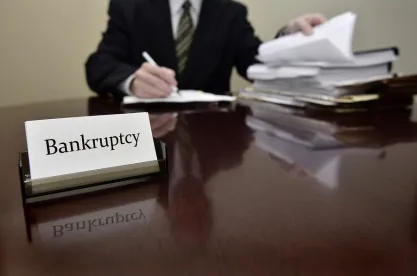Filing a bankruptcy petition automatically halts efforts to collect pre-petition debts from the debtor outside of bankruptcy.
This "automatic stay" is a command to halt action, and creditors violate it at their own peril. If a creditor wants to continue a lawsuit against a debtor outside of bankruptcy, repossess collateral, terminate a lease, set off debts, or pursue other collection efforts, it first must obtain stay relief from the bankruptcy court. If you violate the stay, you can be held in contempt and forced to pay damages.
But what if a creditor began collection activity before bankruptcy, took possession of collateral, and then the borrower filed bankruptcy? Do the Bankruptcy Code's automatic stay provisions require the creditor to unwind its actions when notified of the filing? And if the creditor refuses, is it in jeopardy of being sanctioned? In other words, can a creditor violate the automatic stay by doing nothing?
On January 14, 2021, in City of Chicago v. Fulton, a unanimous United States Supreme Court said: "No." The Supreme Court held that mere retention of property after a bankruptcy filing does not violate the automatic stay. The automatic stay only prohibits affirmative acts that would disturb the status quo of bankruptcy estate property at the time of the bankruptcy filing.
The case involved multiple similarly-situated debtors in bankruptcy. The city of Chicago had impounded each debtor's vehicle for failure to pay parking tickets or other motor vehicle fines. They then filed Chapter 13 bankruptcy and demanded return of their vehicles. When the City refused, bankruptcy courts held that the City's refusal violated the automatic stay and held the City in contempt. The Court of Appeals affirmed the decisions, but the Supreme Court held that the lower courts got it wrong.
To prove a stay violation, a party must establish that (1) a violation occurred, (2) the violation was committed willfully, and (3) the violation caused actual damages. The automatic stay prohibits any act to obtain possession of property of the estate or to exercise control over estate property. Stated simply, the Supreme Court determined that the automatic stay means "stay, not go." Creditors cannot disturb the status quo at the time of the bankruptcy filing, but they also can't be punished for not taking affirmative steps to change the status quo at the debtor's behest.
Although this is a creditor-friendly decision, creditors are advised to proceed with caution when these situations arise. The critical requirement is maintaining the status quo. A creditor with collateral in hand cannot rush to liquidate it after a bankruptcy filing. That would violate the automatic stay and likely warrant sanctions.
Creditors should also realize that a separate section of the Bankruptcy Code allows a debtor to initiate a turnover proceeding to recover property. Creditors who face that situation should confer with counsel to determine if they are more likely to prevail at a turnover hearing or if they should avoid the time and expense and return the property to the debtor voluntarily.




 />i
/>i
